Solution for supporting Telco OSS/BSS processes tSM
More than just automation, tSM brings modular innovation to your business processes - making complex operations simple, flexible, and future-ready.
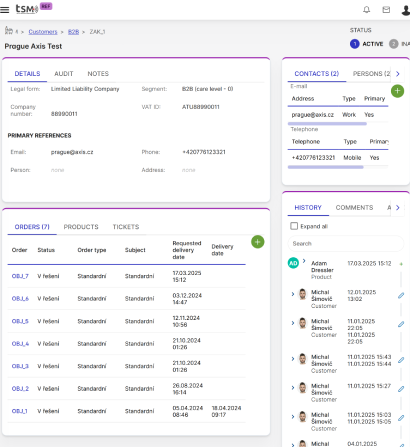

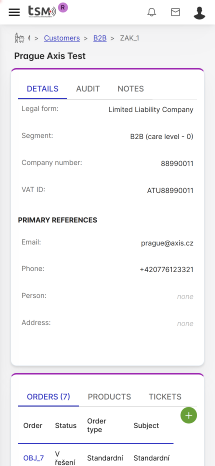
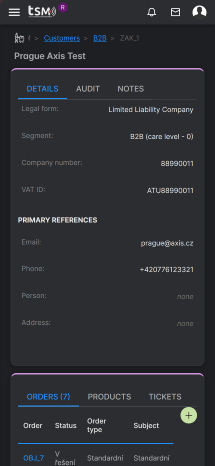
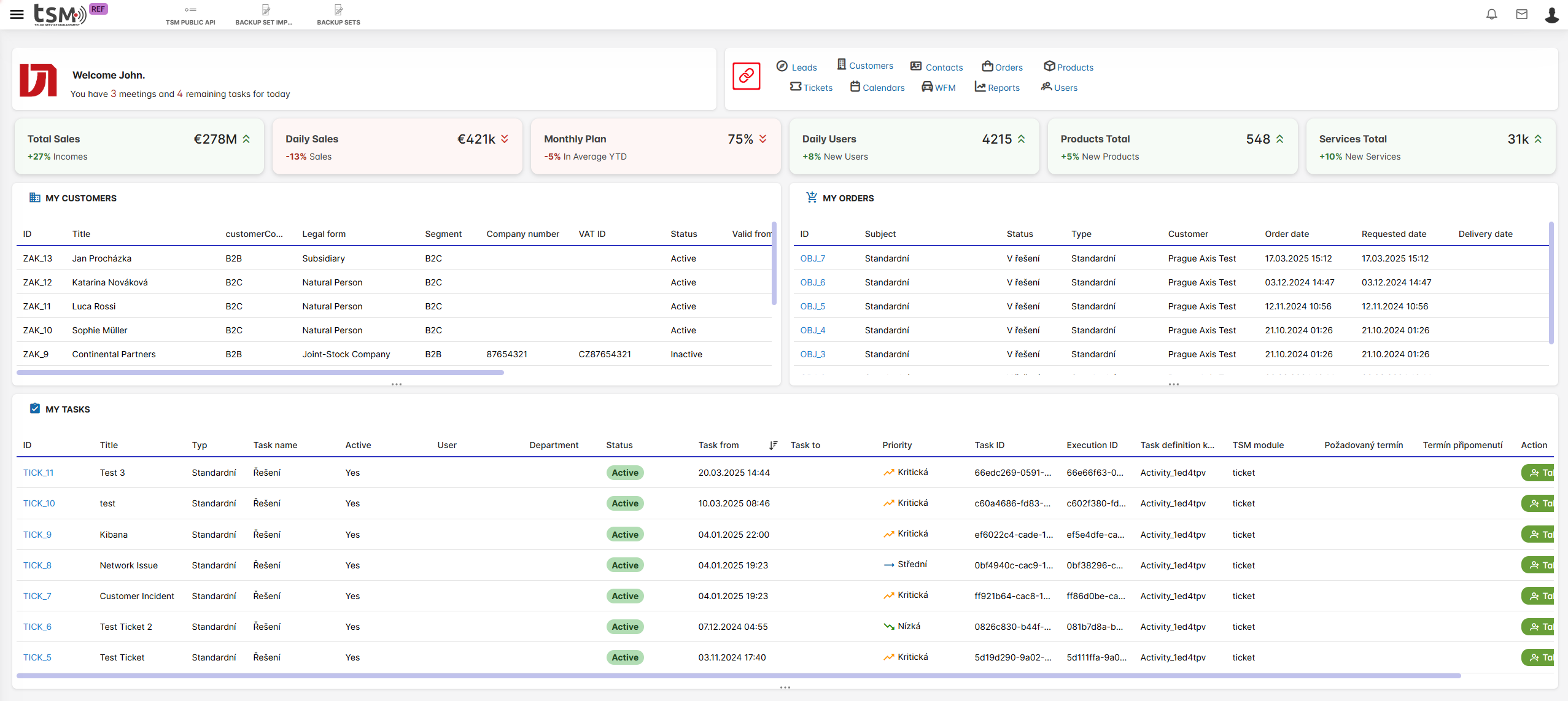
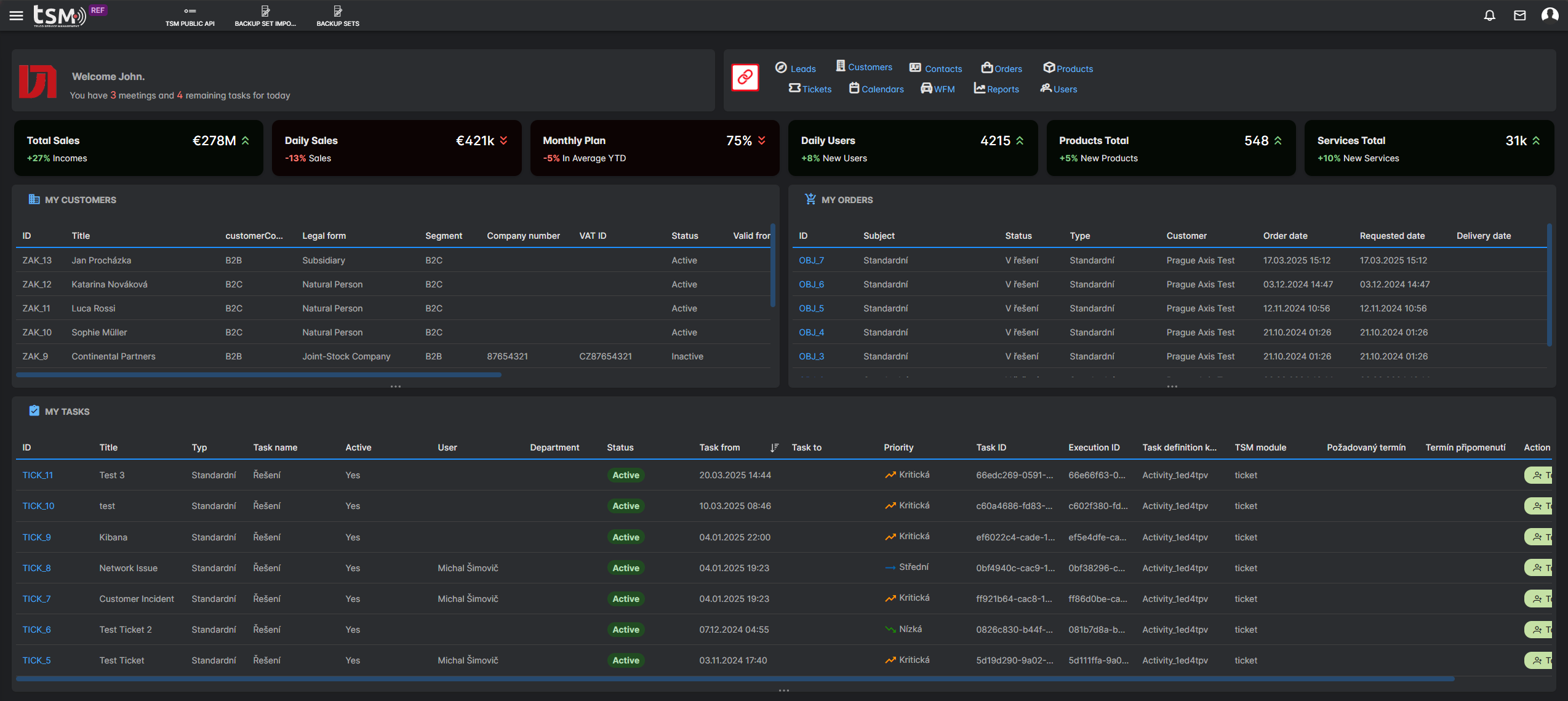
Why tSM for Your operations?
tSM addresses the typical challenges faced by modern service providers - disparate systems, manual processes, high integration costs - by offering a unified, modular, and configuration-driven solution. Whether you're a growing ISP, service provider or a large carrier, tSM\'s flexible architecture keeps your customer lifecycle, service provisioning, network assets, and billing perfectly aligned.
Speed & Efficiency
Deploy core CRM, Order Management, or Ticketing modules in days - preconfigured but easily adapted to your needs with minimal coding.
Low-Code Extensibility
Fine-tune processes with BPMN, add new data fields to forms, or create entire modules using tSM’s Form Builder and powerful scripting (TQL, SpEL, JEXL) - all without rewriting the core application.
Full Lifecycle Coverage
Manage the entire customer journey - from lead and CRM, through provisioning and network inventory, all the way to rating, billing, and maintenance activities - within one integrated platform.
Technology & Components That Power tSM
Underlying all modules is the tSM Platform: a set of shared services and components that keep your data consistent, your processes orchestrated, and your customization opportunities wide open.
Design & Automate Business Processes
Model, orchestrate, and execute complex workflows using tSM’s BPMN-based Process Designer. Automate approvals, task routing, and integrations with scheduled jobs using the built-in Scheduler to reduce manual work and ensure process reliability.
Design Interfaces and Explore Data
Quickly build forms and pages using over 100 UI widgets. Visualize and edit customer records, orders, or tickets with powerful data-grid Listings, and gain insights from real-time Dashboards—all without writing code.
Customize Behavior with Scripts
Leverage scripting to fine-tune tSM logic across the stack. Use SpEL for backend expressions, TQL for advanced data queries in dashboards or listings, and JEXL to enable responsive behavior in UI forms—all with minimal code.
Generate Documents and Alerts
Send automated emails or SMS alerts triggered by process events or SLA warnings. Generate contracts, invoices, and other documents using reusable templates directly tied to tSM entities and workflows.
Visualize Maintenance and Workflows
Track events, service windows, and task timelines using visual calendars. Coordinate team availability and overlay multiple views to optimize dispatch and prevent conflicts in workforce-heavy operations.
Integrate Seamlessly with External Systems
Use TM Forum-compliant APIs to integrate tSM with CRMs, ERPs, or self-service portals. Perform entity operations, trigger workflows, or retrieve analytics via secure, well-documented endpoints.

Designed for Complex Services. Ready for Any Industry.
tSM is a modular, microservice-based platform for orchestrating complex service operations across domains like customer management, fulfillment, billing, field execution, and technical provisioning. It includes ready-made business modules—such as CRM, Order Management, Billing, Workforce Management—and shared tools for workflow automation, data modeling, and integration. Whether you're digitizing service delivery or building your own tailored processes, tSM provides the flexibility and standards-alignment (TM Forum, MEF, etc.) to scale and adapt with confidence.
Configuration Profiles by which you can add data fields, statuses, and business logic—without editing code.
Form & Page Builder to create brand-new entity types or multi-step wizards for advanced data capture.
Scripting for dynamic form rules, custom routing in processes and advanced data queries.
API-first approach so external systems can trigger, or be triggered by tSM events.
Multi-tenant readiness for service providers running multiple brands in parallel.
A process engine that helps you seamlessly automate any process or workflow you need.
Transform Your Operations with Real Results
0%
Reduction in repeated incident tickets after implementing Preventive Maintenance & Change Management flows.
0%
Faster order fulfillment cycles via BPMN-driven Order Management & Inventory linking.
0%
Improved data accuracy across CRM, Order, and Billing modules through centralized customer and service entity models.
0%
Reduction in on-site technician dispatches by leveraging remote diagnostics and skill-based Workforce Management scheduling.
DataLite's software ensures high automation in O2's operations, managing service delivery and fault processes efficiently.
—Zdeněk Boháč - Director of O2 Czech Republic BSS Development & Operations
Need help? Frequently Asked Questions
Ready to Accelerate Your Services?
From CRM to Billing, from Ticketing to Network Construction, tSM is the all-in-one solution for telecoms looking to unify operations and drive next-level efficiency. Jump in with standard modules, or easily create new ones to match your unique processes—tSM is built to grow and adapt alongside your business.